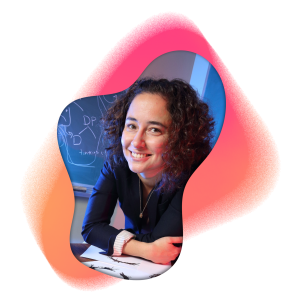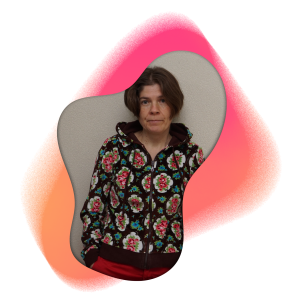Lecturers

Rajesh Bhatt
Rajesh Bhatt is Professor of Linguistics, at the University of Massachusetts, Amherst. He is interested in the comparative syntax of the Modern Indo-Aryan languages, the syntax-semantics interface, Tree Adjoining Grammars, and creation of linguistic resources for South Asian Languages. He completed his BTech in Computer Science at IIT Kanpur in 1993 and got his PhD at the University of Pennsylvania in 1999. From 1999-2004 he was an assistant professor at UT Austin. Since 2004, he has been at UMass Amherst where he is currently a full professor. He has also taught as a visiting professor at MIT and at various iterations of the LSA summer institutes, LISSIM summer school in India, the NYI in Saint Petersburg Russia, and the CreteLing summer school.
THERESA BIBERAUER
Theresa Biberauer is a linguist with primarily morphosyntax-centred research interests in language variation, acquisition, contact and change. She has a particular interest in Afrikaans and the Germanic and other contact-shaped varieties of southern Africa. Theresa is a Fellow of Churchill College, Cambridge, and Director of Studies in Linguistics at Churchill, Corpus Christi, Lucy Cavendish, Magdalene, Robinson, St Edmund’s, and St John’s Colleges. She also holds honorary professorships at Stellenbosch University and the University of the Western Cape in South Africa, and she is an affiliate of the Center for Syntax, Semantics and Phonology (CRISSP) at KU Leuven, and a Mercator Fellow in the context of the Frankfurt-Göttingen-Tübingen NegLaB.


Željko Bošković
Željko Bošković is Professor in the Department of Linguistics and the Cognitive Science Program at the University of Connecticut. His research interests include syntactic theory, generative typology, the syntax-semantics interface, and the syntax-phonology interface. He has been teaching at the University of Connecticut since 1995, when he obtained his PhD degree. He has also overseen over 50 PhD dissertations and published over 130 research articles.
Karen De Clercq
Karen De Clercq obtained her PhD at Ghent University (Belgium) in 2013. Since 2020 she has been a CNRS researcher affiliated with the Laboratoire de Linguistique Formelle at Université Paris Cité. She is the author of The Morphosyntax of Negative Markers (Mouton de Gruyter, 2020), and co-editor of Exploring Nanosyntax (OUP, 2018) and Adverbial Resumption in Verb Second Languages (OUP, 2023). Her main research interest is the morpho-syntax of negation, which she approaches from a typological and nanosyntatic perspective. She is currently the PI ofja the ANR-funded project Sentential Negation across the Globe. The fine-grained structure of a linguistic universal (2022-2026). She also works on negative concord, degree morphology, Q-words and V2/V3 patterns in Dutch.


jessica coon
Jessica Coon is Professor of Linguistics at McGill University and Canada Research Chair in Syntax and Indigenous Languages. Her research is in syntactic theory, with a special focus on cross-linguistic variation and topics in the syntax of under-documented languages of the Americas, especially languages of the Mayan family, and more recently Kanien’kéha (Northern Iroquoian). She has worked on topics including ergativity, split ergativity, hierarchy effects, verb-initial word order, nominalization, and agreement. In addition to theoretical work, she has been involved in collaborative partnerships with language communities aimed at language documentation and revitalization.
Aleksandra Ćwiek
Aleksandra Ćwiek is a researcher at the Leibniz-Centre General Linguistics (ZAS) in Berlin and a PI of the project “On the FLExibility and Stability of gesture-speecH coordination (FLESH): Evidence from production, comprehension, and imitation”. She received her Ph.D. from the Humboldt University of Berlin in 2022. In her doctoral thesis, she studied the diversity of linguistic iconicity and its role in language evolution and in language nowadays. She examined aspects such as iconic prosody, sound symbolism, and German ideophones. Her further interests include acoustic phonetics, speech-gesture link, cognition, and cross-linguistic research.


KATHRYN DAVIDSON
Kathryn Davidson is a Professor of Linguistics at Harvard University, where she directs the Meaning & Modality lab. Her research interests include experimental and theoretical semantics, pragmatics, and connections between semantics and other aspects of cognitive science. She frequently approaches these topics from the perspective of language development and from language as it occurs in the visual modality, both full sign languages like American Sign Language as well as the visual/gestural aspects of spoken languages.
AMY-ROSE DEAL
to be updated


Caroline Féry
Caroline Féry is emerita Professor for Phonology at the Department of Linguistics at the University of Frankfurt where she worked between 2010 and 2019. Before that she was Professor for “Theory of Grammar/Phonology” at the Department of Linguistics at the University of Potsdam since 1999. Her interests lie in the prosodic and tonal structure of languages, most of all at the interface between syntax and intonation as well as in the theory of grammar. She founded the Research Center on Information Structure in Potsdam and Berlin, and the Graduate School on Nominal Modification in Frankfurt. She has written and edited several books, the most recent one is an overview of the phonology of German in an Optimality Theory framework. Brussels is her native town, and French her native language.
DANNY FOX
to be updated


Elly van Gelderen
Elly van Gelderen is Regents Professor Emeritus at Arizona State University. She is a syntactician interested in systematic language change, in particular grammaticalization and the linguistic cycle. She argues that such systematic change provides insight in the Faculty of Language. Elly has also examined argument structure in the history of English: the internal aspect of a verb stays remarkably constant. Her most recent book projects are Third Factors in Language Variation and Change (CUP, 2022) and The Linguistic Cycle: Economy and Renewal in Historical Linguistics (Routledge, 2023).
PATRICK GEORG GROSZ
Patrick Georg Grosz is Professor of Linguistics at the University of Oslo. He obtained a Mag.phil. in Linguistics from the University of Vienna (2005) and a PhD in Linguistics from MIT (2011). His interests include semantics, syntax, pragmatics, and their interfaces; he has worked on topics such as optatives, imperatives, discourse particles, pronouns, agreement, and the diachrony of ‘dunno’ indefinites. In his current research, he is focusing on the application of linguistic methodology beyond natural language, to objects such as emojis and gestures, with a particular emphasis on face emojis.


MAGDALENA KAUFMANN
to be updated
STEFAN KEINE
to be updated


SOTARO KITA
Sotaro Kita is Professor of Psychology of Language at the University of Warwick. After a PhD in psychology and linguistics from University of Chicago, he worked at Max Planck Institute for Psycholinguistics, University of Bristol, and University of Birmingham. His main research area is the relationship between gesture, language and cognition. He has investigated how processing of gesture and processing speech are inter-related, how gesture production influences thinking, how gesture varies cross-culturally, how gesture contributes to language development. He has used various methodologies to investigate the relationship such as behavioural and neuroscientific experiments and qualitatively analysis of data collected in field work.
frank kügler
Frank Kügler is Professor of Linguistics at Goethe University Frankfurt. His research interests are in cross-linguistic prosody from various different perspectives such as the expression and modelling of information structure, prominence and sentence mode in typologically unrelated languages, the interaction of tone and intonation, and prosodic phrasing and recursive prosodic constituents at the prosody-syntax interface. His recent interests include also the gestural marking of prosody. He has worked on the prosody of a number of typologically diverse languages including Mandarin, Hindi, Akan, Tswana, Ghanaian English, Yucatec Maya, Hungarian, and German among others.


JEREMY KUHN
Jeremy Kuhn is a CNRS researcher, affiliated with the Institut Jean Nicod at the Ecole Normale Supérieure in Paris. He studies natural language semantics, with a particular focus on sign language data (including French Sign Language and American Sign Language). He is broadly interested in semantic phenomena that pose challenges for compositionality, including plural dependencies and negative concord. An important theme of his work on sign language revolves around the integration of iconicity—in which structure is preserved between form and meaning–and the combinatorial grammar. He has investigated how combinatorial and iconic mechanisms work in tandem throughout semantic composition to generate and manipulate discourse representations.
SILVA LADEWIG
Silva Ladewig is interested in the embodied nature of language. For this she studies multimodality from a linguistic perspective in the fields of Pragmatics, Cognitive Grammar, Cognitive Semantics and Dynamic Multimodal Communication. Of special interest are stabilization processes in gestures and the interface between gesture and sign which she explores now at the Sign Language Lab at the University of Göttingen. Silva received her Ph.D. in Linguistics at the European University Viadrina in 2012 where she has worked in many interdisciplinary projects on the integration of gesture and speech, the linguistic potential of gestures, and the dynamics of multimodal metaphors.


ALESSANDRO LENCI
to be updated
Anikó Lipták
Anikó Lipták is Associate Professor at the Leiden University Centre for Linguistics (LUCL), in the Netherlands. She obtained her BA/MA diploma at (what is now called) the University of Szeged, Hungary, and her PhD at Leiden University in 2001. Her main field of interest is (comparative ) syntax, with special attention to Hungarian, Dutch and English. She worked on aspects of information structure, the structure of questions and relative clauses. In more recent years she is concerned with issues such as the syntactic representation of elliptical utterances, the form of headlines and the interaction between ellipsis and morphology.


elin mccready
Elin McCready is Professor in the Department of English Language and Literature at Aoyama Gakuin University. Her research is on semantics and pragmatics, with focus on expressive content, social meaning, and evidentiality. She is the author of Reliablity in Pragmatics (Oxford University Press, 2015) and The Semantics and Pragmatics of Honorification: Register and Social Meaning (Oxford University Press, 2019), and the forthcoming Signaling Without Saying: The Semantics and Pragmatics of Dogwhistles (with Robert Henderson; Oxford University Press), as well as articles in journals including Linguistics and Philosophy, Semantics & Pragmatics and other journals. She also does work in literature and literary interpretation, and is a member of the art collective MOM.
THOMAS MCFADDEN
to be updated


ANDREW MURPHY
Andrew Murphy obtained his PhD in 2017 from Leipzig University. He has since worked at the University of Chicago, the University of Göttingen and the University of Potsdam. His research interests pertain to theoretical morpho-syntax and he has worked on a range of phenomena such
as movement, agreement, ellipsis and inflectional morphology from a variety of languages. He has published his research in journals such as Natural Language and Linguistic Theory, Linguistic Inquiry, Glossa and The Linguistic Review.
ROUMYANA PANCHEVA
to be updated


roland pfau
Roland Pfau is Associate Professor in Sign Language Linguistics at the Department of General Linguistics of the University of Amsterdam. He obtained his MA (1995) and PhD (2001) from the University of Frankfurt. His research focuses on aspects of sign language morphosyntax, syntax, and grammaticalization, often taking a typological and cross-modal perspective on the subject matter by comparing, on the one hand, sign languages to spoken languages and, on the other hand, sign languages to each other. He has (co-)authored numerous journal articles and book chapters, and he is co-editor of the journal Sign Language & Linguistics.
WIM POUW
to be updated


BENJAMIN SPECTOR
to be updated
SANDHYA SUNDARESAN
to be updated


THOMAS EDE ZIMMERMANN
Thomas Ede Zimmermann received a doctoral degree in theoretical linguistics from Konstanz University in 1987 and held teaching positions at various universities before being appointed professor of formal semantics at Goethe University Frankfurt in 1999, from where he recently retired. His main research interests include descriptive compositional semantics, the logical foundations of semantics, and philosophy of language. He (co-) authored two textbooks as well as more than 50 research papers.
